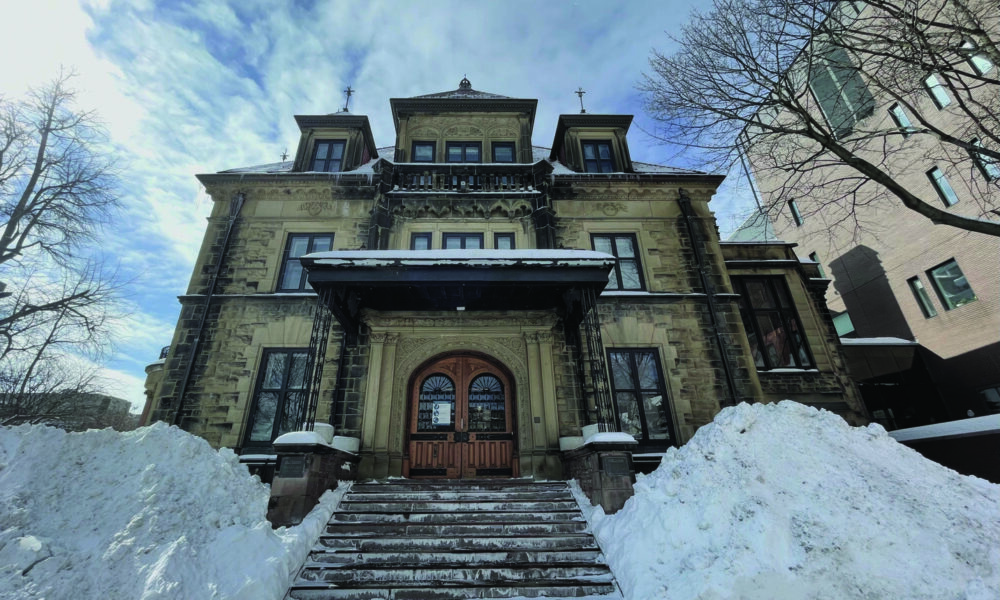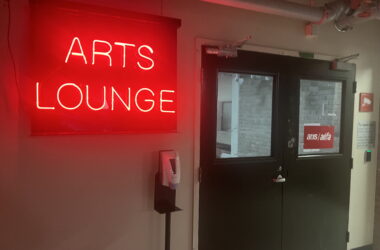For the first time at McGill, a group of professors are seeking a union to represent them in their relations with the McGill administration. On Nov. 7, 2021, professors at the Faculty of Law submitted their union membership cards to the Tribunal administratif du travail (TAT), Quebec’s labour relations tribunal, and filed a petition for certification. Since then, the McGill administration has been litigating against the certification and refusing the faculty-specific union that the professors applied for.
Professor Evan Fox-Decent, interim president of the Association of McGill Professors of Law (AMPL), explained that the motivation to unionize emerged out of a collective hope to restore collegial governance and faculty autonomy at McGill, arguing that “the COVID crisis was the bale of hay that broke the camel’s back.”
In Aug. 2021, a number of law professors wrote a letter to the administration demanding that they implement a policy requiring proof of vaccination for those coming to campus for the Fall 2021 semester. The letter was greeted with a memo by Provost and Vice-President (Academic), Christopher Manfredi asking faculty deans and department heads to name specific professors who were reluctant to teach in person. Fox-Decent says the administration’s disciplinarian response to the letter highlights the “climate of fear” in which professors work.
“The history of our governance at McGill has always, pridefully, been based on the notion of collegial governance, and it’s simply impossible to read that memo from August 29th and believe that the authors of it are committed to collegial governance in a meaningful sense,” Fox-Decent said in an interview with The McGill Tribune. “Our only hope is to work with [the administration] on a slightly more equal and transparent footing on matters of mutual concern with a collective foundation and the labour code to support us.”
According to Quebec’s Labour Code, upon receiving a petition for certification, a labour relations officer must assess whether the bargaining unit applied for is representative of the majority of workers that it would comprise, as well as whether the union has the agreement of the employer. In this instance, the requested bargaining unit would represent professors at the Faculty of Law. However, the McGill administration has opposed the union on the grounds that the bargaining unit should comprise professors across all faculties.
In an email to the Tribune, Frédérique Mazerolle, a McGill media relations officer, reported that none of the current bargaining units or associations at the university cover only a single faculty.
“The university is of the opinion that the unit proposed by the petitioning association is not appropriate,” Mazerolle wrote. “Moreover, the administration feels it does not take into account the converging interests of a broader group of employees and the history of labour relations at McGill University.”
Fox-Decent recalled that unionized service personnel, such as custodial employees under the Service Employees Union (SEU) at McGill, have different bargaining units based on the buildings in which they work. Fox-Decent contends that similar to the SEU, the roles and work of professors are highly specialized and lead to distinct interests that require distinctive bargaining units.
Richard Janda, a McGill law professor and secretary of the AMPL, is unsatisfied with McGill’s proposed bargaining unit, arguing that it dismisses the exact centralized force that the unionization efforts aim to combat. According to both Janda and Fox-Decent, McGill presented documents at the hearings before TAT that revealed yearly faculty agreements between the provost and the deans about budgeting and other matters of governance. Janda believes that the existence of individual agreements with each faculty demonstrates that each has specific interests that the administration’s proposed bargaining unit would counter.
“Our faculty, according to those documents, is given significant autonomy. In that sense, the university is something more akin to a federation […] and we’d like to keep it that way,” Janda said in an interview with the Tribune. “The fact remains that we have a pretty specific community of interests. It’s not unheard of [to] have specific units unionized within the university.”
There is precedent for this: At York University, for instance, professors of Osgoode Hall Law School are separately unionized under the Osgoode Hall Faculty Association (OHFA), while remaining faculty members are unionized under the York University Faculty Association (YUFA).
Fox-Decent shared Janda’s sentiments about the documents and expressed frustration about the fact that they had not been made known to professors previously.
“We see unionizing and entering into collective bargaining as a sunshine offensive,” Fox-Decent said. “It’s going to make transparent many decision-making processes that have been hidden from us until now and give us the opportunity to participate in those.”
Many law students at McGill have been vocal about their disapproval of the administration’s decision to litigate against law professors. In fact, at the law faculty’s town hall with Dean Robert Leckey on Jan. 21, many attending students turned their cameras off to reveal coordinated profile pictures that read out “Let them unionize,” followed by a red heart.
Samuel Helguero, a 3L student who attended the town hall on Jan. 21 was disappointed in the administration’s refusal to accept the union and its decision to hire Corrado De Stefano—a partner lawyer from one of Canada’s biggest law firms, Borden Ladner Gervais (BLG) limited liability partnership (LLP).
“The central administration really has no leg to stand on in their legal case at the labour tribunal in resisting the union, which makes [their opposition] all the more incredulous,” Helguero said in an interview with the Tribune. “They are using students’ tuition money and they’re definitely union-busting, plain and simple.”
Helguero, who also helped organize the Law Students Association’s faculty strike in protest of the university’s reopening for the Winter 2022 semester, stressed that the unionization efforts and the student strikes are connected movements against McGill’s administration.
“It’s really about the struggle for self-determination over the spaces that we are working in,” Helguero said. “Students are workers, as are professors—we should both have full decision-making powers. “COVID-19 illustrated external bodies that are unelected making decisions for us, and inevitably the decisions being made about us, without us, were the decisions we didn’t like and that were putting us in danger.”
Fox-Decent, who expressed solidarity with the law student strike movement in a letter, criticized McGill’s decision to fight the unionization, arguing that the money dedicated to litigation could have been redirected to purchase N-95 masks or to adopt other safety measures.
“To support us, students should write directly to Provost Manfredi and Principle Fortier expressing their dismay that at a time when McGill is saying that it does not have the resources to provide, for instance, universal hybrid education in all of its courses, that it can, nevertheless, find considerable resources to engage in litigation to break a union that its law professors are trying to start,” Fox- Decent said.
Additionally, Fox-Decent encouraged students to attend the upcoming hearings. The AMPL is working to livestream the upcoming hearing to accommodate online attendees.
“McGill just wants to pretend like [the unionization] is not happening, but at the same time they are not proud of [resisting the union],” Fox-Decent said. “It’s still possible for the wider McGill community to encourage our administration to think again about whether ongoing adversarial litigation against a supermajority of its colleagues in the Faculty of Law is the best way to run a university.”The previous hearing, originally scheduled for Feb. 14, was postponed by McGill due to a medical emergency with their attorney. The next AMPL v McGill (case number 1251090) hearings will take place on May 2, May 4, and May 13 at 9:30 a.m.
A previous version of this article stated that all law students at the Jan. 21 town hall turned their cameras off to show solidarity with the professors’ unionization efforts. In fact, it was many, but not all, of the students. The Tribune regrets the error.










Pingback: McGill law professors ‘feeling very positive’ following final union certification hearing - The McGill Tribune